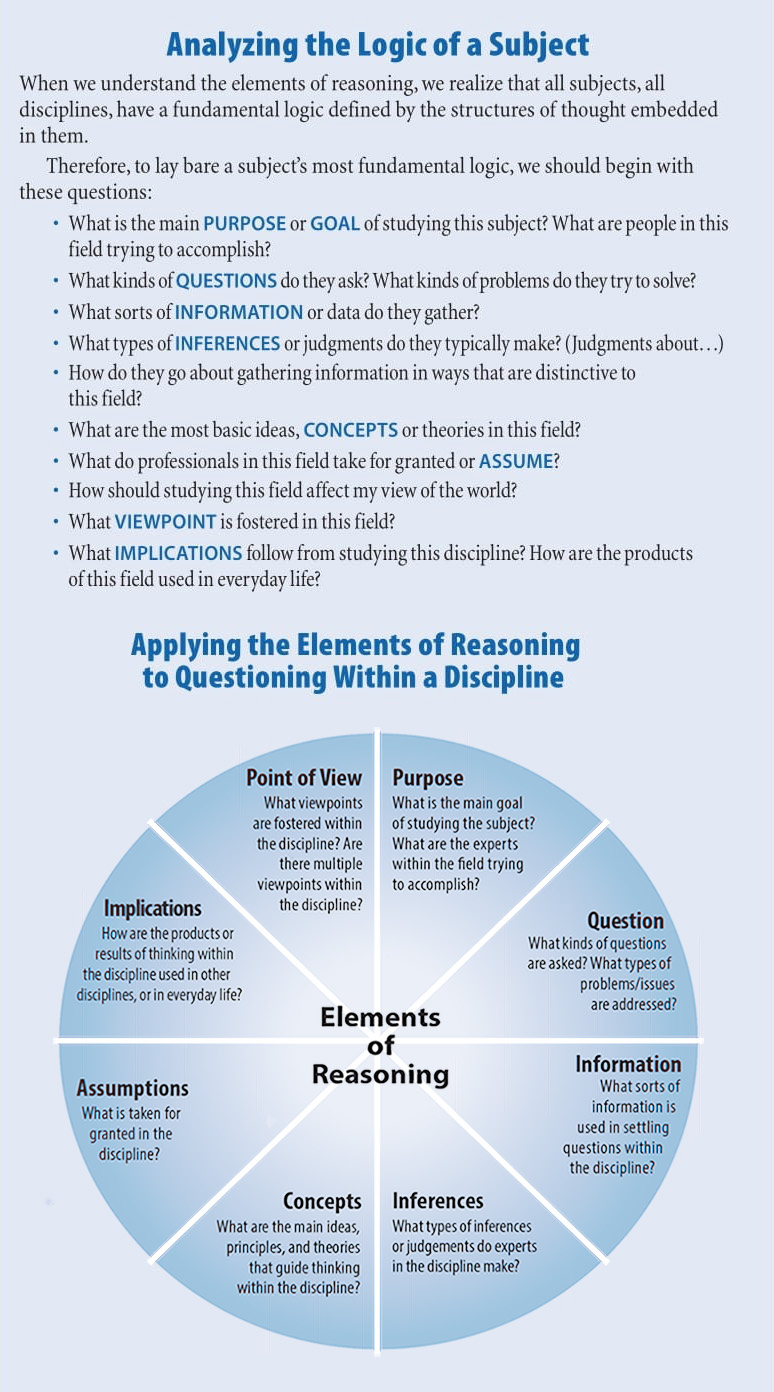Activity:
Analyze the Logic of a Profession, Subject, or Discipline
Learning to think within the logic of a subject is analogous to
learning to perform well in basketball, ballet, or on the piano.
Thinking within the logic of a subject at an advanced level without
disciplined practice is as unnatural to the human mind as sitting
down at a piano and spontaneously playing Chopin’s Polonaise.
To learn the think well within a subject, discipline, or profession
requires taking command of its fundamental logic, or in other
words, to understand the elements of reasoning embedded in it
and then to develop and pursue your own important questions
within the subject.
In this section we will offer a list of Logics of professions, subjects and disciplines, for your practice and understanding. For each one, first write out your answers; then see our specimen answers. Use this format for these analyses:
In this section we will offer a list of Logics of professions, subjects and disciplines, for your practice and understanding. For each one, first write out your answers; then see our specimen answers. Use this format for these analyses:

Use this template for analyzing the logic of a profession, subject, or
discipline now:
Click on a profession, subject, or discipline to complete an activity then view a specimen answer for that
topic. When reading our specimen answers,
remember that our logic does not offer “the right answer,” but rather a
logical and feasible way of looking at the subject. We may have left out something
important in any given specimen answer that you may include in yours. Learning
critical thinking, and how to use the elements of reason, is an art, not a science,
though we may use science in answering a given question.
Humanities and Literature:
Science:
Engineering:
Business:
Intrinsic Barriers to Critical Thinking: